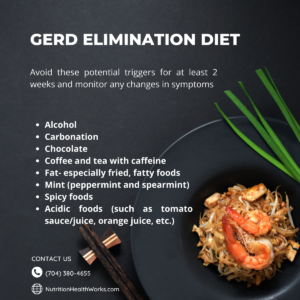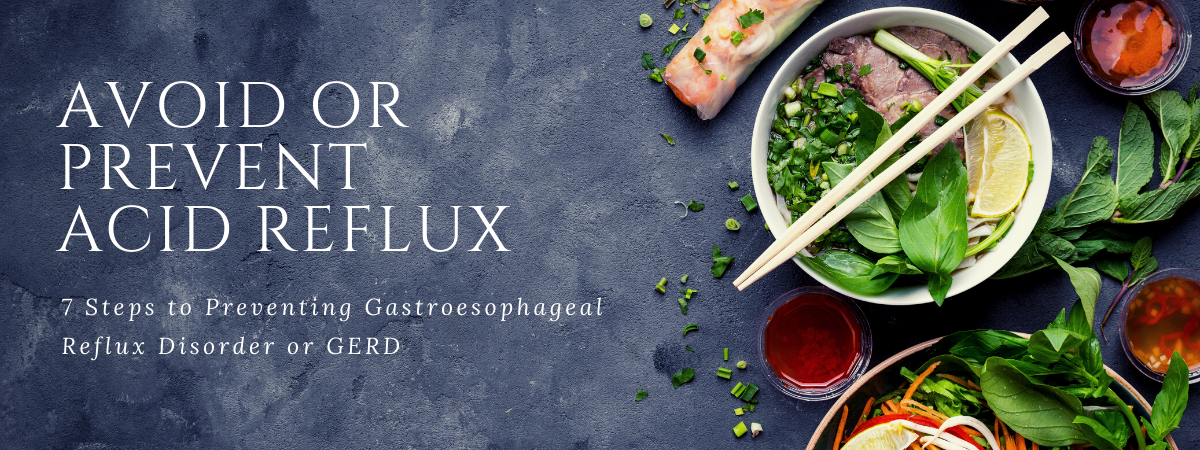What is Acid Reflux or GERD?
Gastroesophageal Reflux Disorder, also known as GERD, is a condition that generally causes symptoms of “heartburn” or a burning sensation in your chest or throat. This can occur when stomach contents and acid backflow into the esophagus, which in turn can cause damage to the lining of the esophagus. Recent research estimates that 18-28% of Americans suffer from this condition. (1) Some of the more common symptoms of GERD include not only heartburn but also acid reflux, nausea, vomiting, chest pain, cough, hoarse voice or difficulty swallowing.
Causes of Gerd
There are a number of potential causes of GERD, however, a common consideration is an abnormality in the mechanism of the lower esophageal sphincter (LES). This sphincter is located at the juncture of the esophagus and stomach and it helps keep the contents of the stomach from backwashing up into the esophagus. It can be problematic if this mechanism is not working properly or becomes too “relaxed”. Other causes may be related to increased pressure in the stomach (intra-abdominal pressure) due to central abdominal obesity, pregnancy or even tight clothes. Other conditions such as a hiatal hernia or decreased saliva can be risk factors for GERD.(2) Additionally, high levels of emotional stress and anxiety may worsen GERD symptoms(4).
 Interventions for GERD
Interventions for GERD
There are some lifestyle modifications that can help minimize or eliminate symptoms in mild cases. For example, smoking and obesity are likely contributing factors to the prevalence of GERD, hence weight management and smoking cessation can offer improvement. Modifications in physical activity, eating behaviors, diet, and stress reduction may offer support for symptom management. Additionally, the use of certain botanicals and herbal medicine might be considered for the relief or resolution of symptoms.
7 Steps to Avoid or Prevent Acid Reflux
1. Quitting Smoking:
Smoking cessation may reduce the symptoms of GERD. The culprit in smoking may be related to reduced LES pressure, decreased salivary bicarbonate production, or increased coughing contributing to intra-abdominal pressure. (2)
2. Weight Loss:
In those who are overweight or obese, weight loss through proper nutrition and exercise has demonstrated improvement in GERD symptoms, possibly by reducing the intra-abdominal pressure.
3. Exercise:
Regular exercise is considered beneficial for gastrointestinal function and digestion. It can facilitate motility and peristalsis which improves stomach emptying and may improve LES muscle tone. Moderate daily exercise is suggested, preferably not directly after a meal. It was noted that strenuous exercise such as running, weight lifting, and to a lesser extent cycling may actually increase GERD activity for some.(2)
4. Eating Behaviors:
Plan for smaller, more frequent meals. Avoid eating large meals as this increases the stomach contents which can lead to symptoms. Consume an earlier dinner. Try to finish your last meal 3 hours before bedtime. If you have symptoms at night, elevate the head of your bed 4-6 inches using blocks under the bedposts. Eat your meals while sitting upright. Avoid eating food while lying down. Wear loose clothing, as it can prevent additional intra-abdominal pressure.
5. Nutrition:
While the research regarding a particular diet or specific food is somewhat inconclusive, the general recommendation tends to be the inclusion of high fiber, lower fat intake, while avoiding any potential GERD triggering foods. (2, 3) The literature suggests that macronutrients such as simple carbohydrates and high fat intake may be contributing factors to GERD. (2, 5) However, studies on specific foods, such as coffee, alcohol, spicy and acidic foods demonstrate mixed results. Some of these specific foods and beverages are thought to be problematic because they may increase gastric distension, decrease LES tone or create mucosal irritation of the esophagus. Since the data on many of these suspected foods is conflicting, there are no definitive dietary recommendations (2-5) It appears that specific food triggers need to be personalized and an elimination diet can be helpful in identifying individual intolerances.
Here are some general nutrition tips for preventing heartburn :
-
- Focus on fiber: include whole grains, fruits, vegetables, and legumes. Aim for 25-35 gm of fiber daily.
- Limit high fat and fried, greasy foods
- Try a GERD elimination diet protocol to identify specific food triggers. Try to avoid some of the more common food and beverage culprits from your diet for at least 2 weeks. During this time monitor your symptoms to determine if they improve.
 GERD Elimination Diet:
GERD Elimination Diet:
Avoid these potential triggers for at least 2 weeks and monitor any changes in symptoms:
-
- Acidic foods (such as tomato sauce/juice, orange juice, etc.)
- Alcohol
- Carbonation
- Chocolate
- Coffee and tea with caffeine
- Fat- especially fried, fatty foods
- Mint (peppermint and spearmint)
- Spicy foods
6. Mind-body Approaches:
Stress management and relaxation techniques can potentially help improve GERD symptoms. Incorporating a regular practice of deep breathing, meditation or journaling may be beneficial.
7. Supplement and Herbal Remedies:
The use of certain supplements and botanicals has shown to be helpful in the management of GERD. These include both melatonin and ibergast. (6)Others that may offer support include licorice (DGL, deglycyrrhizinated licorice), slippery elm, marshmallow, chamomile, however, there are fewer studies to demonstrate their efficacy. (6)
For more details and information on dietary approaches for GERD management and the use of supplements or botanicals, talk to your physician or a dietitian at Nutrition HealthWorks. We specialize in medical nutrition for GI conditions!

Ann Sukany-Suls
MEd, RDN, LD - Mooresville NC
Ann Sukany-Suls is a Licensed and Registered Dietitian Nutritionist with a Master’s Degree in Counseling and over 30 years of experience. Ann specializes in weight management and medical nutrition for chronic disease and GI disorders. READ MORE
References
- Yamasaki T, Hemond C, Eisa M, Ganocy S, Fass R, The Changing Epidemiology of
Gastroesophageal Reflux Disease: Are Patients Getting Younger? J Neurogastroenterol Motil. 2018 Oct; 24(4): 559–569. - Festi D, Scaioli E, Baldi F, Vestito A, Pasqui F, Di Biase AR, Colecchia A. Body weight, lifestyle, dietary habits, and gastroesophageal reflux disease. World J Gastroenterol. 2009;15(14):1690-701.
- Tosetti, C., Savarino, E., Benedetto, E. et al. Elimination of Dietary Triggers Is Successful in Treating Symptoms of Gastroesophageal Reflux Disease. Dig Dis Sci 66, 1565–1571 (2021).
- Bradley LA, Richter JE, Pulliam TJ, et al. The relationship between stress and symptoms of gastroesophageal reflux: The influence of psychological factors. Am J Gastroenterol. 1993; 88: 11-19.
- Newberry C, Lynch K. The role of diet in the development and management of gastroesophageal reflux disease: why we feel the burn. J Thorac Dis 2019;11(Suppl 12): S1594-S1601. doi: 10.21037/jtd.2019.06.42
- Dossett ML, Cohen EM, Cohen J. Integrative Medicine for Gastrointestinal Disease. Prim Care. 2017;44(2):265-280. doi:10.1016/j.pop.2017.02.002



